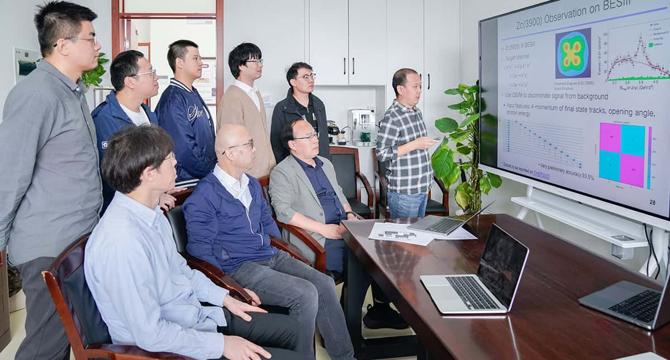Physicsworld
1M
164

Image Credit: Physicsworld
IHEP-SDU in search of ‘quantum advantage’ to open new frontiers in high-energy physics
- The Institute of High Energy Physics (IHEP) in China is investigating quantum computing and quantum machine-learning technologies to speed up scientific breakthroughs.
- The lab has established a joint working group with Shandong University’s Institute of Frontier and Interdisciplinary Science.
- The Quantum Computing for Simulation and Reconstruction (QC4SimRec) initiative aims to create a player for quantum computing applications in high-energy physics research.
- The program will investigate detector simulation, particle tracking, particle identification, particle dynamics, and collision analysis.
- Hideki Okawa, who heads quantum applications at IHEP, said the organisation is keen to work with early-career scientists from domestic and international institutions.
- The SDU has been seeking to recruit senior-level scientists from Europe and the US, while both organisations want to establish a joint national laboratory with dedicated quantum computing facilities across their campuses.
- The QC4SimRec team is also studying the rediscovery of the exotic particle Zc(3900) using quantum machine-learning techniques.
- The discovery of new exotic particles like Zc(3900) could lead to a paradigm shift called “quantum advantage”, enabling practical calculations that are currently expensive or unattainable on classical machines.
- QC4SimRec is part of IHEP’s at-scale quantum computing effort, tapping into cutting-edge technology from a network of academic and industry partners in China.
- Quantum computing is having a transformative effect on a variety of research fields, including climate modelling, finance and drug discovery.
Read Full Article
9 Likes
For uninterrupted reading, download the app